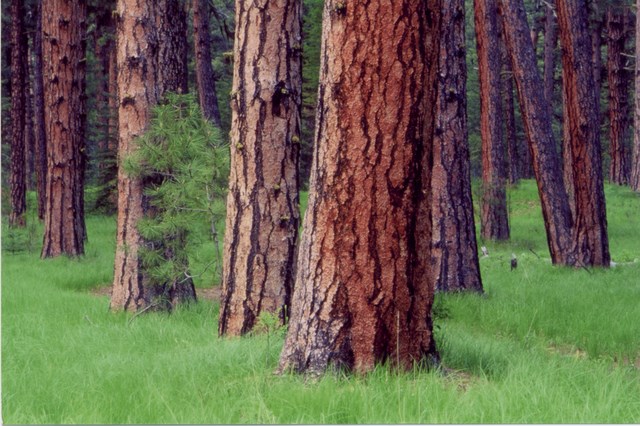Delegates to the LWVOR Convention 2021 adopted a position statement on Forests based on the LWV of Washington study entitled Washington’s Dynamic Forests (PART 1) (PART 2) .
LWVOR Position on Forests (2021)
The League of Women Voters of Oregon finds:
1: That all benefits of the forests—ecological,human and economic—are inextricably interconnected. Healthy forests are essential to habitat for a diversity of plant and animal life, to the hydrologic cycle, and to carbon storage to mitigate global warming. In addition, healthy forests are essential to a forest products industry with the jobs and goods they provide, and to the economic and aesthetic values of their recreational opportunities. Therefore, The League of Women Voters of Oregon supports:
2: Laws and policies to insure that forest management (for timber extraction, recreation or any other activity) is carried out in a manner that will sustain healthy forests, streams and habitats. The League of Women Voters of Oregon believes that the following are essential elements of an adequate forest practices policy:
3: The public must be informed and involved in the decision-making process in the development of regulations. There must be adequate public notice of forest practices permit applications, hearings, meetings and proposed actions. Public review and comment at each phase of policy and regulation development should be required. Citizens and stakeholders must be represented on the decision making bodies.
4: There must be authority and funding for enforcement of regulations. Existing land use and forest practices regulations must be monitored and enforced, and should be responsive to changing scientific knowledge. There must be coordination of regulations for public and private lands among governmental entities.
5: Riparian zones are an integral part of the forest ecosystem and must be regulated adequately to protect the streams and the wildlife dependent upon the streams.
6: Education should be made available to timber owners on scientifically sound forest practices with the establishment of a small landowners’ agency for this purpose.
7: Environmental values of the lands proposed for trade must be considered before the economic values. Trained appraisers, with public oversight, must be used. The right of appeal must be available to the public
8: Full accounting of all costs, including cumulative ecological impacts, of timber harvests and other forest uses must be considered in forest activity decisions.
9: Forest management must be responsive to scientific research and knowledge and should include:
· mapping, classification and protection of all streams,
· more and better data—including total watershed analysis,
· evaluation of cumulative effects of various activities in the forest in the consideration of individual forest practice permits, and
· planning for sustainability of forest ecosystems.
10: The State should consider ecological protections the most important factor in deciding which activities to allow on state forest lands.
11: Motorized activities should be restricted and in separate areas from non-motorized activities.
12: Forest roads must be built, maintained and decommissioned to have the least impact on the forest ecosystems. Some areas on state lands should be roadless.
13: Educate consumers about the human and ecological values of our forests as well as the opportunities and benefits of more efficient use of forest products, recycling and the use of alternatives to wood.
14: Fund independent scientific research that would include improved forest practices and ecologically sound alternatives to the use of wood.
15: Tax benefits and compensation should be considered to encourage small landowners to manage their forests in an ecologically sustainable manner.
16: Oregon schools must be fully funded with less reliance on timber harvests.
17: Trust lands should remain in public ownership.
The LWVOR Convention of 2021 adopted these position statements based on the LWVWA studies entitled: Washington’s Dynamic Forests.
Would you like to learn more or support this effort? See the links below.
https://oregonwild.org/forests/forest-protection-and-restoration
https://www.oregon.gov/lcd/FF/Pages/Forestland-Protection.aspx
https://www.sierraclub.org/oregon/protect-our-wild-forests
https://oregonforests.org/habitat-protection
https://www.oregonloggers.org/Forest_Sustainability_Environment.aspx
https://www.wilderness.org/wild-places/oregon/logging-oregons-wild-forests#
